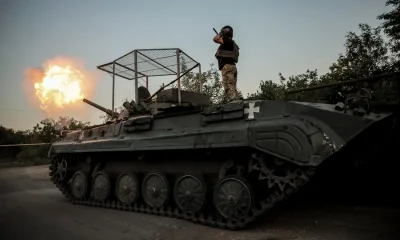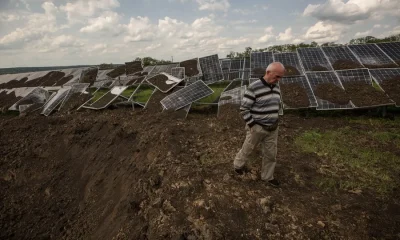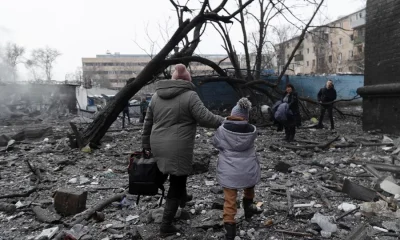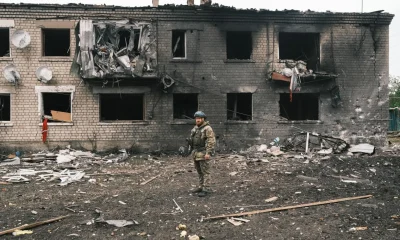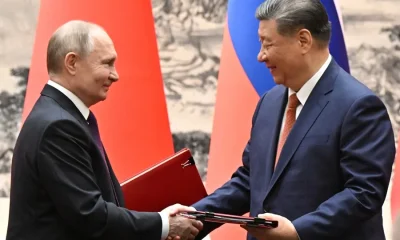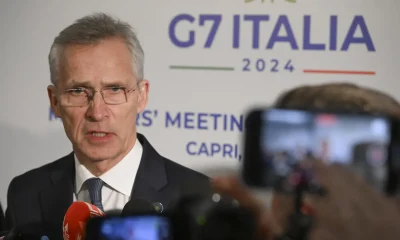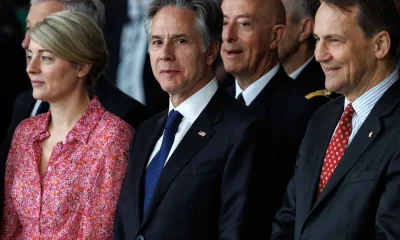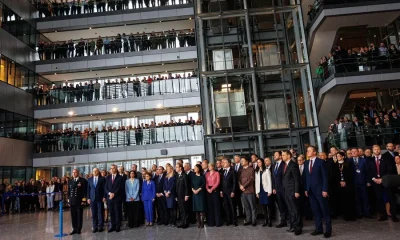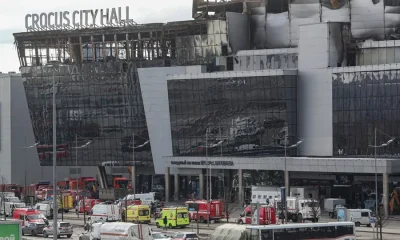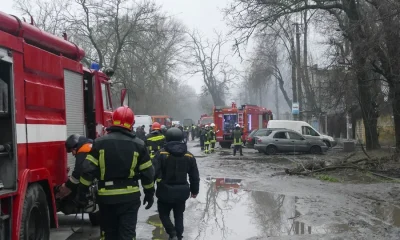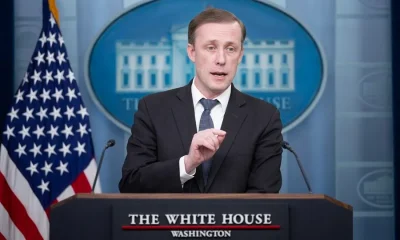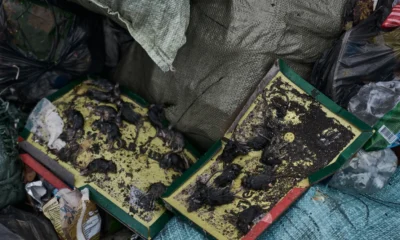International
Ukraine debates the exemption from military service in exchange for higher taxes

Ukraine is studying the possibility of allowing its citizens to avoid mobilization in exchange for a greater contribution to the state budget, in an attempt to find the right balance between guaranteeing enough soldiers for the Army and resources to pay for the defense of the country and an enlistment during martial law that is considered fair.
The Ukrainian Parliament is preparing to review three bills presented by the president of its Economy Committee, Dmitro Nataluja, which provide for the so-called exemption or “economic reserve” of individual employees and entrepreneurs.
Thus, companies will be able to “reserve” their especially valuable employees by paying an additional amount to the state budget of about 470 euros per month for each or when the salary is equal to or greater than 840 euros, since taxes in this case are already high.
Supporters of the idea argue that it would help limit the growing labor deficit in Ukraine, caused by emigration and mobilization, which 58% of companies indicate as the main problem.
According to the European Association of Ukrainian Enterprises, the measure would complement the current reservation mechanism, which is based, among other measures, on mobilization quotas in various sectors considered the most important and is often criticized for its lack of transparency and predictability.
The “economic reserve” would guarantee that companies continue to function, thus boosting the economy and contributing to the financing of the Army, the companies argue.
Currently, the State finances its defense against the Russian invasion only with its own income, while the money contributed by the allies directly to the state budget can only be spent on “civilian” purposes.
According to the Government of Ukraine, at least 11.500 million more euros need to be found in 2024.
Nataluja maintains that his idea can contribute between 4.6 billion and 7.4 billion euros to the budget, which would help equip and pay the soldiers who are being mobilized now.
The fate of the proposals depends on the support they obtain in society depending on their impact on the mobilization.
Vitali, a 35-year-old computer scientist from the city of Lviv, has barely left his apartment in the last half year for fear of meeting on the street with the representatives of the recruitment center.
Since the country currently needs more soldiers on the battlefield, he fears that he will be sent to an infantry unit and be injured or died.
With a monthly income of much more than 400 euros, the average salary of the country, Vitali says that he would be happy to pay to avoid military service, in addition to the frequent direct donations to the Ukrainian Army that he currently makes.
“I would know that I am not doing anything wrong from a legal point of view, I would support our defense effort and I could finally live without fear,” he explains to EFE.
However, for many soldiers and veterans, the introduction of an “economic reserve” would be a hard blow to national unity and the image of the Army.
“It is the principle of social justice that differentiates us from our enemy. We are all equal before the law, in the Army we are all equal and all sectors of the population must enlist,” argues on local television “Express” Oleg Simoroz, a well-known veteran who lost both legs in combat.
Simoroz points out that such “discrimination based on property” or personal wealth has no place in “a civilized democracy.”
According to him, the idea undermines long-term efforts for military service to be considered “prestigious” and that, instead, the Government should increase taxes on oligarchs and optimize its own expenses to find more funds.
Those who defend the proposals point out, however, that the veteran ignores that some pay bribes to avoid mobilization or have difficulties due to the absence of clear rules on the exemption from mobilization.
They believe that the “economic reserve” would make the mobilization more transparent and would also benefit the Army.
International
Spain’s irregular migrant population rises to 840,000, study finds
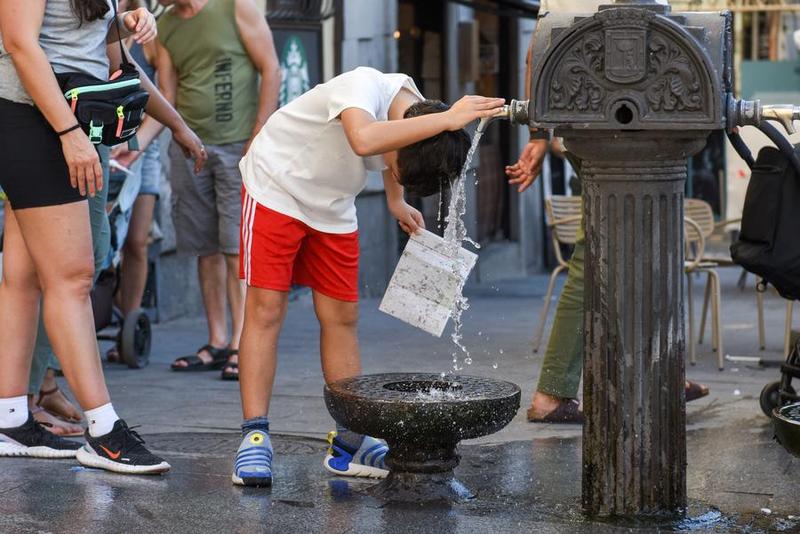
The number of migrants living in Spain without legal residency status continues to rise and has reached 840,000 people, with 91% originating from the Americas, particularly Colombia, Peru and Honduras, according to a report by the Spanish think tank Funcas (Foundation of the Savings Banks).
An estimated 17.2% of the non-EU foreign population living in Spain is in an irregular administrative situation. The estimate is based on the gap between the number of foreign residents effectively living in Spain, according to the National Statistics Institute (INE), and those who hold a residence permit, benefit from international protection, or are in the process of obtaining it.
The data, as of January 1, 2025, point to a notable and sustained increase in irregular migration since 2017, when the estimated figure stood at around 107,000 people, representing 4.2% of the non-EU population residing in Spain.
By origin, migrants from the American continent stand out, totaling around 760,000 people, or 91% of all irregular migrants. Colombians account for nearly 290,000, followed by Peruvians with almost 110,000, and Hondurans with about 90,000. Migrants from Africa (50,000), Asia (15,000) and Europe (14,000) trail far behind.
The figures predate Spain’s latest immigration regulation reform, which came into force in May 2025 and introduces measures to ease access to legal status through residency ties. According to Funcas, the reform would, in principle, tend to reduce the number of migrants in an irregular situation.
International
Historic snowstorm paralyzes Toronto after 60 centimeters of snow

Toronto, Canada’s largest city and the fourth most populous in North America, was largely paralyzed on Monday after a historic snowstorm dumped up to 60 centimeters of snow and sent temperatures plunging to -15 degrees Celsius, authorities said.
Late Sunday, as the scale of the snowfall became clear, city officials declared a climate emergency, triggering extraordinary measures including parking bans on several major streets to facilitate snow removal operations.
Toronto’s public transit authority reported that while some buses remain immobilized, subway and streetcar services are operating with relative normality, though localized disruptions may occur.
A similar situation is affecting the city’s commuter rail network, which remains operational but is experiencing significant delays on its main routes due to the severe weather conditions.
International
Venezuela frees at least 80 political prisoners, NGO says
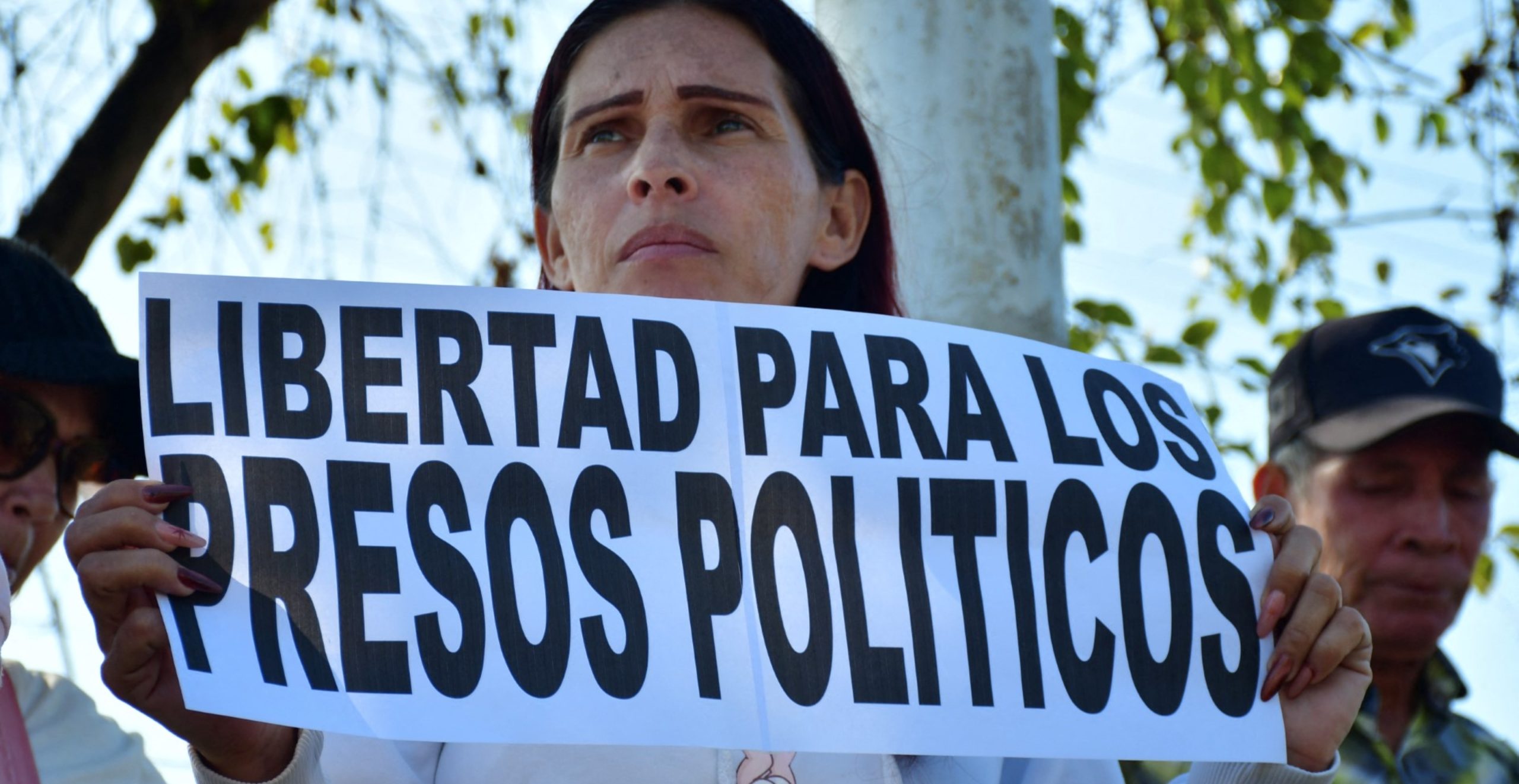
At least 80 political prisoners were released on Sunday across Venezuela, human rights group Foro Penal reported, as the broader process of detainee releases continues at a slow pace under the interim government.
Foro Penal’s director, Alfredo Romero, wrote on social media platform X that verified releases took place nationwide and that the figure could rise as more confirmations are completed.
Attorney Gonzalo Himiob, also from Foro Penal, said the excarcelations occurred during the early hours of the day and emphasized that the number is not yet final pending further verification.
The releases are part of a series of steps announced by Venezuela’s interim leader, Delcy Rodríguez, who took power after the capture of former President Nicolás Maduro in a U.S. military operation on Jan. 3, 2026. Rodríguez has pledged a significant number of liberations but has been criticized by opposition groups and rights organizations for the slow and nontransparent nature of the process.
So far, the Venezuelan government reports that 626 detainees have been freed since December, though independent counts by human rights groups suggest the number of actual political prisoner releases is lower and that many remain behind bars.
Families of those still detained have maintained vigils outside prisons, hopeful for further releases even as broader concerns about political imprisonment and due process persist.
-

 Central America5 days ago
Central America5 days agoMazatenango Carnival cancelled amid State of Siege in Guatemala
-

 International5 days ago
International5 days agoTrump to invite Venezuela’s interim president Delcy Rodríguez to Washington
-

 International5 days ago
International5 days agoMarkets rise as Trump halts Europe tariffs and floats Greenland agreement framework
-

 International5 days ago
International5 days agoVenezuela’s interim president predicts 37% increase in revenues for 2026
-

 International3 days ago
International3 days agoTrump-Era Defense Plan Prioritizes Border Security and Scales Back Global Commitments
-

 Central America3 days ago
Central America3 days agoGuatemala’s president rules out negotiations with inmates after prison riots
-

 Internacionales3 days ago
Internacionales3 days agoMajor winter storm threatens “catastrophic” ice and snow across much of the U.S.
-

 International5 days ago
International5 days agoJapan reopens Kashiwazaki-Kariwa Plant despite public concerns
-

 International5 days ago
International5 days agoFour minors killed in deadly clash between FARC dissidents in Colombia’s Amazon
-

 International3 days ago
International3 days agoBogotá and Quito Seek Dialogue After Tariffs and Power Cut Escalate Tensions
-

 International3 days ago
International3 days agoGuatemala considers sending high-risk gang members to military prisons
-

 International2 days ago
International2 days agoDelcy Rodríguez seeks political agreements after Maduro’s ouster
-

 International2 days ago
International2 days agoFederal immigration agents kill man in Minneapolis, sparking protests and outrage
-

 International3 days ago
International3 days agoRights group says over 5,000 killed in Iran protests, mostly civilians
-

 International15 hours ago
International15 hours agoHistoric snowstorm paralyzes Toronto after 60 centimeters of snow
-

 International15 hours ago
International15 hours agoRights group says nearly 6,000 killed in Iran protest crackdown
-

 Central America15 hours ago
Central America15 hours agoGuatemala seizes over a ton of cocaine hidden in flour at Pacific port
-

 International15 hours ago
International15 hours agoSpain’s irregular migrant population rises to 840,000, study finds
-

 International15 hours ago
International15 hours agoVenezuela frees at least 80 political prisoners, NGO says
-

 International15 hours ago
International15 hours agoEU launches new probe into X over AI-generated fake nude images
-

 International16 hours ago
International16 hours agoFrance debates ban on social media for children under 15
-

 International16 hours ago
International16 hours agoSevere winter storm grips U.S., leaves multiple dead as extreme cold persists

























